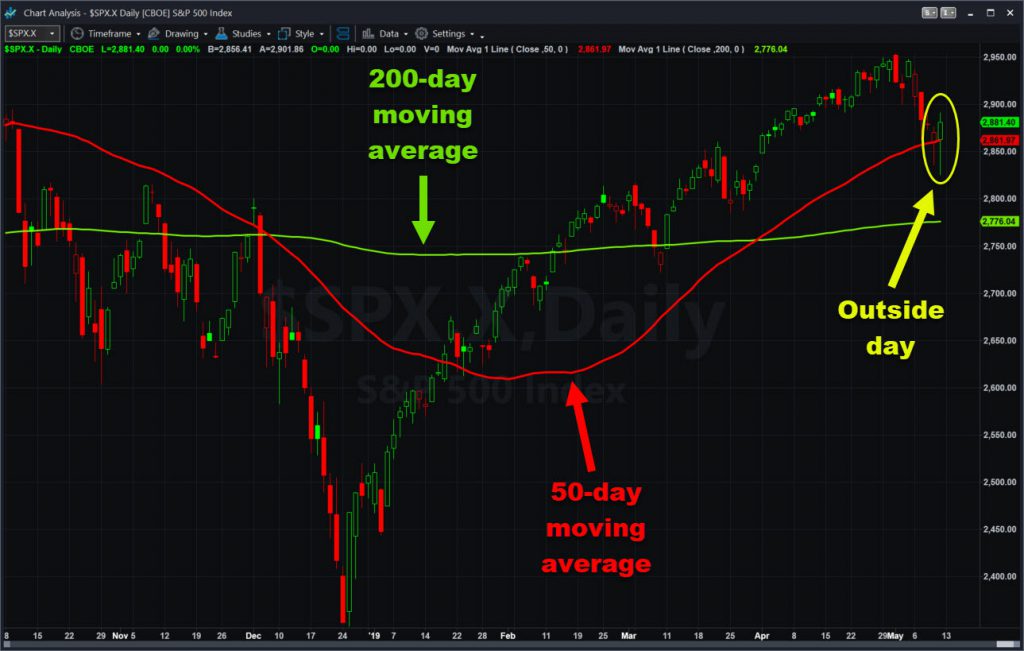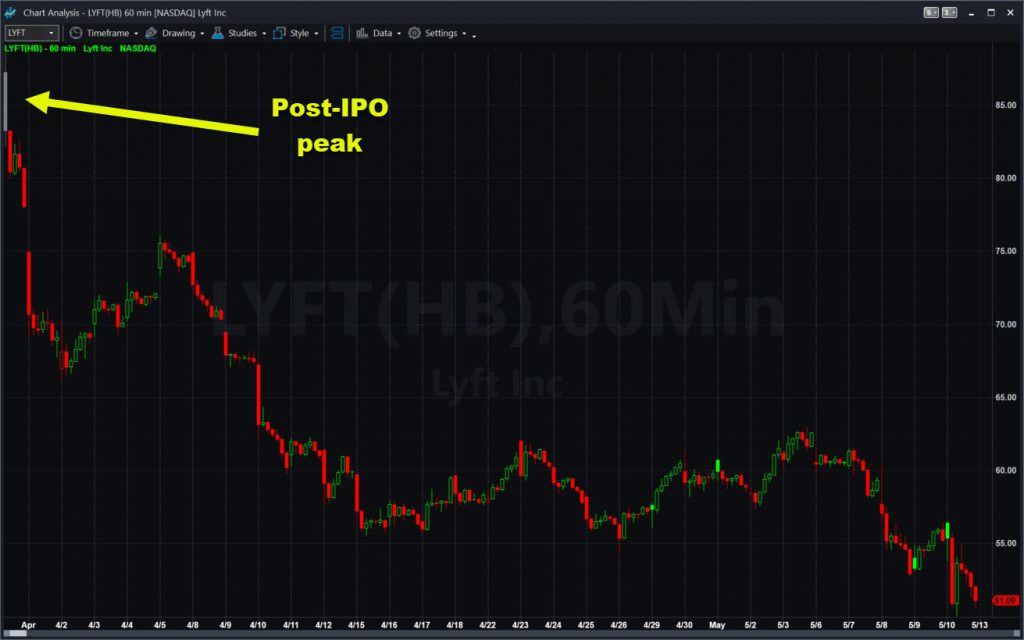Stocks just had their most dramatic week of the year after President Trump renewed his trade war against China.
The S&P 500 swung 112 points between its high and low, the biggest weekly range since markets were crashing in December. The overall decline of 2.2 percent was also the sharpest of the year, with every major sector enduring a loss.
The drama began on Sunday, May 5, when Trump announced plans to more than double tariffs on $200 billion of Chinese goods. That was followed by a stream of back-and-forth comments, but the basic message was that investors shouldn’t complacently assume Washington will reach a trade deal with Beijing.
Technology stocks — especially semiconductors — and industrials bore the brunt of the selling because they have the most exposure to the giant Asian economy. Emerging markets, metals and oil services also dropped. Ditto for retailers, whose supply chains are intertwined with China.

Still, the S&P 500 managed to hold its 50-day moving average and its late-March consolidation zone around 2850. Was this the pullback everyone was waiting for? Chart watchers may also notice Friday’s lower low and higher high, a so-called outside day. That’s sometimes considered a reversal pattern.
Low Inflation, Weak Growth Overseas
Other news had little impact on the market, but there were some interesting tidbits. For one thing, inflation remained benign as core CPI and PPI both came in below estimates. The Euro Zone cut its growth forecast, while Malaysia and the Philippines lowered interest rates. All those stories could keep the U.S. Federal Reserve in the “dovish” camp.
It was also a big week for earnings, led by Dow Jones Industrial Average member Walt Disney (DIS). Results had a bearish skew overall, with some of the bigger movers pushing to the downside.
Take Mylan (MYL), for instance. The debt-laden generic drug maker had its worst week since the financial crisis, down 21 percent after revenue missed and management groped for a turnaround strategy. That made it the biggest loser in the S&P 500.
Uber Goes Public, Lyft Reports
Symantec (SYMC) also found itself rudderless after its CEO jumped ship and guidance disappointed. Other companies have managed to find growth opportunities in the cyber-security niche, but not SYMC. Its 18 percent selloff made it the second-worst performer in the index.
American International Group (AIG) was the biggest gainer. The insurance giant rallied 9 percent after beating estimates on the top and bottom lines. Dental supplier Henry Schein (HSIC) followed with a similar move, also lifted by strong results.
Ride-sharing companies were another a big story last week. Lyft (LYFT) lost a lot more money than projected in its first quarterly report, while Uber Technologies (UBER) issued shares at the low end of its expected range. Both stocks show how the optimism of Silicon Valley’s venture capitalists doesn’t always play out on Wall Street.

Economic Data This Week
Let’s get back to the economy because some interesting events are scheduled for this week. Major themes include housing, the U.S. consumer and China’s economy.
China will be in focus tomorrow night, when number-crunchers in Beijing release industrial production and retail sales data. Weak numbers could hurt commodities.
U.S. consumer headlines come on Wednesday (retail sales) and Friday (consumer sentiment).
Housing starts and building permits are due Thursday. That could bring attention back to homebuilders, especially with construction jobs increasing and interest rates falling.
There are also a handful of important earnings:
- Monday: Take-Two Interactive (TTWO)
- Wednesday: Alibaba (BABA), Macy’s (M) and Cisco Systems (CSCO)
- Thursday: Nvidia (NVDA)


























